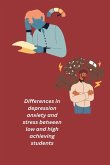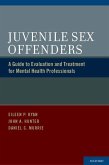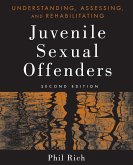Despite research consistently demonstrating a link between childhood maltreatment and depression, our understanding of the potential mediators of this relationship remains limited. Based on the existing literature and corresponding theories, a theoretical model was constructed to assess the effects of childhood maltreatment, impulsivity, hopelessness, and substance use on adolescent offenders' depression severity. This model was tested for sexual abuse, physical abuse, emotional abuse, and emotional neglect using a series of path analyses. Impulsivity and hopelessness partially mediated the effects of childhood sexual abuse and emotional abuse on depression severity, and fully mediated the effects of childhood physical abuse and emotional neglect. Contrary to expectation, substance use did not mediate the relationship between childhood maltreatment and depression severity. These results suggest that childhood maltreatment, impulsivity, and hopelessness may be important variables to include in clinical research related to depression in incarcerated youth.
Bitte wählen Sie Ihr Anliegen aus.
Rechnungen
Retourenschein anfordern
Bestellstatus
Storno









